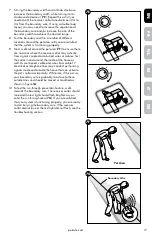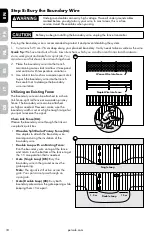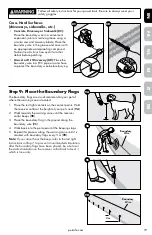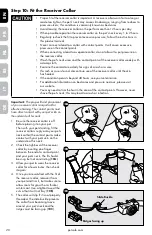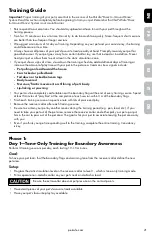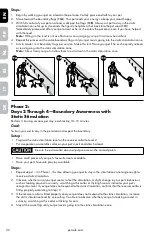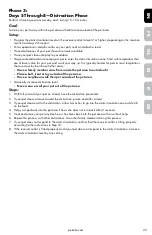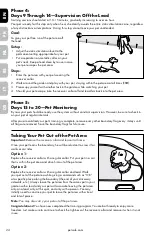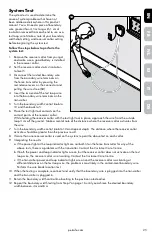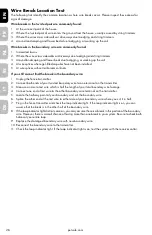
petsafe.com
26
EN
FR
ES
NL
IT
DE
Wire Break Location Test
The following lists identify the common locations where wire breaks occur. Please inspect these areas for
signs of damage.
Wire breaks in the twisted pair are commonly found:
1. At the wire exit point of the house
2. Where the twisted pair of wire enters the ground from the house, usually caused by string trimmers
3. Where the wires cross sidewalks or driveways due to edging and string trimmers
4. Around landscaping and flower beds due to digging, or working up the soil
Wire breaks in the boundary wire are commonly found:
1. In aerated lawns
2. Where the wires cross sidewalks or driveways due to edging and string trimmers
3. Around landscaping and flower beds due to digging, or working up the soil
4. At wire splices where gel-filled capsules have not been installed
5. At wire splices without reinforcement knots
If you still cannot find the break in the boundary wire:
1. Unplug the fence transmitter.
2. Connect both ends of your twisted boundary wire to one terminal on the transmitter.
3. Measure and cut a test wire which is half the length of your total boundary wire footage.
4. Connect one end of test wire to the other boundary wire terminal on the transmitter.
5. Locate the halfway point of your boundary and cut the boundary wire.
6. Splice the other end of the test wire to either side of your boundary wire where you cut it in half.
7. Plug in the fence transmitter and check the loop indicator light. If the loop indicator light is on, you can
assume that the break is in the other half of the boundary wire.
8. If the loop indicator light did not come on, you may assume there is a break in this portion of the boundary
wire. However, there is a small chance of having more than one break in your system. Be sure to check both
halves of your entire loop.
9. Replace the damaged boundary wire with new boundary wire.
10. Reconnect the boundary wire to the transmitter.
11. Check the loop indicator light. If the loop indicator light is on, test the system with the receiver collar.






